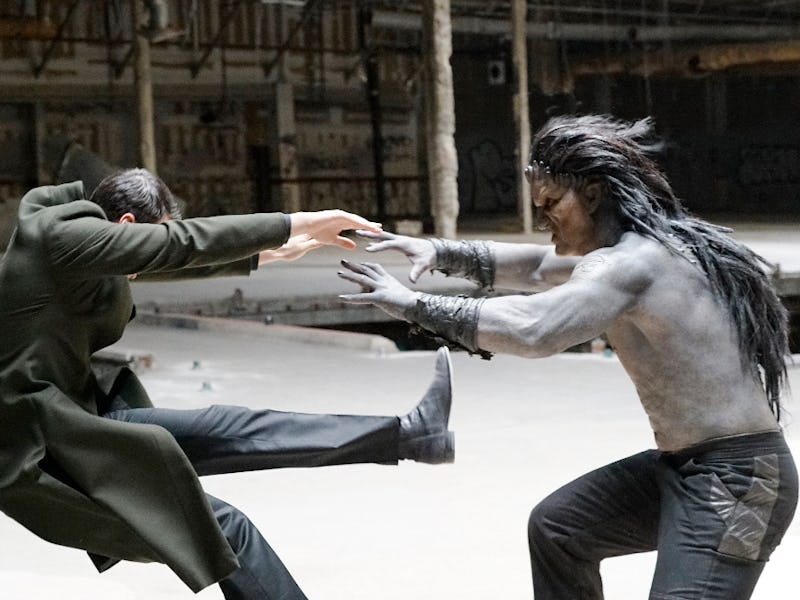What Marvel's 'Agents of SHIELD' Totally Got Wrong About 'Civil War'
"Emancipation" sends Lash, a monster, to fight another monster, while Daisy comes home. All this, while 'Civil War' rages on.

Marvel’s achievement of integrating its cinematic universe hasn’t come without glitches. Marvel Studios chief Kevin Feige was able to wrestle the film side away from the company’s controlling CEO Ike Perlmutter, but Perlmutter still has a grip on the television productions. The division means Marvel’s self-connections comes out of corporate obligation, not organically. Despite cameos and crossovers in the last two seasons, Marvel’s Agents of S.H.I.E.L.D. Season 3 stood to be the TV spy squad’s most independent of the MCU… until this week’s underwhelming installment, “Emancipation.”
Though “Emancipation” wraps up the season’s big plot in Lash (Matthew Willig) ahead of next week’s giant confrontation with Hive — not to mention finally addresses Daisy’s troubling visions — the episode busies itself with Civil War’s Sokovia Accords and what it means for Inhumans. Unfortunately, the show can name-drop Steve Rogers, Tony Stark, and the Avengers all it wants. “Emancipation” horrendously misses the point of the Accords, showing that there’s still a major divide between Marvel’s media universes.
While Daisy (Chloe Bennet), still under the influence of Hive (Brett Dalton), attempts to break Lincoln (Luke Mitchell) out of detainment in S.H.I.E.L.D., the government-led ATCU head General Talbot (Adrian Pasar) visits Coulson’s (Clark Gregg) S.H.I.E.L.D. for an evaluation — and to enforce the Sokovia Accords on S.H.I.E.L.D.’s roster of Inhumans.
Meanwhile, Hive builds a dangerous, Inhuman puppet army with Daisy’s blood. But in an ace move, with secret help from Agent May (Ming-Na Wen), Lincoln sends Lash — the big, hulking Inhuman who fights Inhumans — out for Hive’s blood and to rescue Daisy. Lash dies, but not before reversing Daisy’s influence and turning her back to “normal.”
The Sokovia Accords, as debated (or rather, violently fought over) in Captain America: Civil War, intended to place the independent Avengers under serious federal regulation. Importantly, it applied to the Avengers only. The MCU, along with S.H.I.E.L.D. and the Netflix shows, have shown a rapid increase in superhuman activity, but the Accords were explicitly concerned with the A-listers. It wasn’t Daredevil, Jessica Jones, and definitely not the Inhumans causing mayhem in Sokovia or in Washington D.C.
Agents of S.H.I.E.L.D. sort of got it right; in the Civil War comics, superhumans were to be “registered” and trained in the plainly-titled Superhero Registration Act. That’s not the Accords. While Superhero Registration is a tinge McCarthyist, the Accords are a different kind of federalism.
The differences are negligible to casual viewers, but the MCU is evolving past attracting “casual” viewers. If you’re watching the third season to a Marvel spin-off series, it’s almost a given you aren’t “casual” about Marvel. So for Marvel to grossly mishandle its own themes just feels less like the show is part of a rich universe and more like the TV producers aren’t getting their phone calls answered by the movie guys.